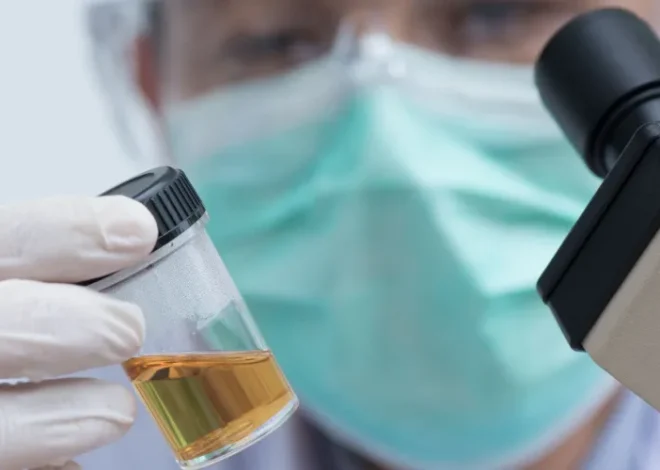
Can Drug Rehab Help with Addiction to Over the Counter Drugs? Understanding the Benefits and Approaches
Over-the-counter (OTC) drugs, often perceived as harmless, can lead to serious addiction issues. Many individuals underestimate the dangers associated with these medications, leading to misuse and dependence. Drug rehab, whether it’s inpatient, IOP, or a Partial Hospitalization Program (PHP) can be an effective solution for those struggling with addiction to OTC drugs, providing the necessary support and treatment to overcome these challenges.
In addiction treatment, professional rehab programs address the unique aspects of OTC drug dependency. These programs not only focus on detoxification but also include therapy and counseling to help individuals understand the underlying causes of their addiction. By fostering a comprehensive recovery approach, individuals can rebuild their lives and establish healthier habits.
Seeking help for addiction to OTC drugs is a crucial step towards recovery. With the right resources and support system in place, individuals can gain control over their lives and work towards lasting sobriety.
Contents
Understanding Addiction to Over-the-Counter Drugs
Addiction to over-the-counter (OTC) drugs is an emerging concern. People often perceive these medications as safe since they are readily available. This misconception can lead to misuse.
OTC drugs commonly abused include:
- Cough suppressants (e.g., dextromethorphan)
- Pain relievers (e.g., acetaminophen, ibuprofen)
- Weight loss pills
- Sleep aids (e.g., diphenhydramine)
Individuals can develop a tolerance to these substances. Increased use can result in physical and psychological dependence.
Signs of addiction may include:
- Increased dosage beyond recommended amounts
- Continuing use despite negative effects
- Using the drug to cope with stress or anxiety
Social and environmental factors also play a role in addiction. Peer pressure, stress, and easy access to OTC drugs can contribute to misuse.
Education on the risks associated with these medications is vital. Awareness can help individuals make informed choices and seek help if needed.
Recovery options include therapy, support groups, and rehabilitation programs tailored to address specifics of OTC drug addiction.
The Prevalence of Over-the-Counter Drug Abuse
Over-the-counter (OTC) drug abuse is a growing concern in many communities. Many individuals do not recognize the risks associated with misusing these medications.
Commonly abused OTC drugs include:
- Cough suppressants (containing dextromethorphan)
- Pain relievers (such as acetaminophen and ibuprofen)
- Antihistamines (like diphenhydramine)
According to various studies, a significant percentage of young adults report having misused OTC medications. For instance, national surveys indicate that around 5% of high school seniors have used cough syrup to get high.
The ease of access to these drugs contributes to the prevalence of their abuse. OTC medications can often be purchased without a prescription, making them readily available.
Additionally, the perception that OTC drugs are safe can lead to higher rates of misuse. Many individuals underestimate the potential for addiction and severe side effects.
Education on the risks associated with OTC drug abuse is essential. Awareness programs can help prevent misuse and encourage safer practices regarding medication use.
How Drug Rehab Can Help
Drug rehab provides structured support to individuals struggling with addiction to over-the-counter drugs. Through various methods, it addresses the psychological and physical aspects of addiction, promoting recovery and long-term health.
Assessment and Personalized Treatment Planning
The journey begins with a comprehensive assessment by healthcare professionals. This evaluation identifies the type of over-the-counter drugs used, the duration of use, and any co-occurring mental health disorders.
Following this, personalized treatment plans are developed. These plans detail specific therapeutic approaches, medication schedules, and goals tailored to the individual’s needs.
Customization increases the likelihood of success, as it takes into account unique circumstances, motivations, and challenges faced by the individual.
Detoxification Support
Detoxification is often the first step in drug rehab. It involves supervised withdrawal from over-the-counter drugs to manage withdrawal symptoms safely.
Medical professionals monitor participants closely during this phase. They provide medications that ease discomfort and prevent complications.
This support is crucial, as withdrawal symptoms can be physically and psychologically challenging, often leading to relapse if not managed properly.
Behavioral Therapies
Behavioral therapies are a core component of drug rehab. These therapies aim to change harmful thought patterns and behaviors associated with addiction.
Cognitive Behavioral Therapy (CBT) is commonly employed, helping individuals understand the factors that lead to drug use.
Through sessions, participants develop coping mechanisms and strategies to avoid triggers in the future, effectively reducing the risk of relapse.
Support Groups and Peer Support
Support groups play a vital role in recovery. They offer a safe space for individuals to share experiences and challenges related to their addiction.
These groups foster community, allowing participants to connect with others facing similar struggles.
Peer support provides encouragement and accountability, making it easier for individuals to remain committed to their treatment goals.
Holistic Therapies and Alternative Treatments
Many rehab programs incorporate holistic therapies to complement traditional treatment methods. These may include yoga, meditation, and art therapy.
These alternatives focus on the mind-body connection, promoting overall well-being.
They also help reduce stress and anxiety, which can be significant triggers for substance use.
Integrating these therapies into rehabilitation supports a more rounded approach to recovery.
Aftercare and Relapse Prevention
Aftercare is essential in maintaining recovery after completing a rehab program. It involves ongoing support, including follow-up therapy sessions and continued participation in support groups.
Relapse prevention strategies are also developed during this phase. This may include identifying personal triggers and developing plans to handle potential challenges.
Continued support significantly lowers the risk of returning to drug use, ensuring individuals can sustain their recovery in the long term.
Types of Drug Rehab Programs
Several types of drug rehab programs cater to different needs and situations. Understanding the distinctions between these programs can help individuals choose the most suitable option for recovery.
Inpatient Rehabilitation Programs
Inpatient rehabilitation programs require individuals to live at the facility during the treatment period. This immersion allows for a structured environment away from everyday distractions and triggers.
Typically, these programs last from 28 to 90 days, depending on individual needs. Patients receive round-the-clock medical supervision and access to counseling services.
The focus is on intensive therapy and support, which can be crucial for those struggling with severe addiction. This type of program often includes group therapy, individual counseling, and educational sessions that cover coping strategies.
Outpatient Rehabilitation Programs
Outpatient rehabilitation programs offer a flexible approach to treatment. Individuals attend therapy sessions while maintaining their daily responsibilities, such as work or school.
These programs generally involve scheduled visits, typically several times a week, where patients participate in therapy sessions. While less intensive than inpatient rehab, they can still provide valuable support and resources.
This option may suit those with milder addiction issues or those transitioning from inpatient care. The ability to apply coping skills in real-life settings can enhance recovery.
Residential Treatment Centers
Residential treatment centers provide a home-like environment for individuals in recovery. Unlike traditional inpatient programs, these centers emphasize community living with peers undergoing similar challenges.
Patients typically stay for several weeks or months, engaging in therapeutic activities that foster personal growth. Programs often include life skills training, group therapy, and recreational activities.
This setting allows individuals to build relationships and support networks essential for lasting recovery. The residential approach also fosters a sense of accountability and belonging among residents.
Sober Living Homes
Sober living homes serve as transitional spaces for individuals nearing the end of their treatment. These homes encourage a drug-free lifestyle while providing support and structure.
Residents share living spaces and adhere to house rules regarding sobriety and responsibilities. These homes create a nurturing environment where individuals can practice their coping skills.
Sober living homes often link residents to ongoing outpatient services or job placement assistance. The focus is on supporting independence while reinforcing sobriety and responsibility.
Challenges in Treating Over-the-Counter Drug Addiction
Treating addiction to over-the-counter drugs presents unique challenges. These hurdles can include difficulty in recognizing the issue, societal stigma, and the presence of co-occurring disorders that complicate treatment.
Recognizing the Signs of Abuse
Identifying addiction to over-the-counter drugs can be difficult. Unlike prescription medications or illicit drugs, many over-the-counter substances are widely accepted and easily accessible.
Common indicators of abuse may include:
- Increased dosage or frequency of use
- Use for non-medical purposes
- Physical symptoms such as drowsiness or agitation
Friends and family may overlook these signs, attributing them to other causes. This lack of awareness can delay intervention and treatment, allowing the addiction to worsen.
Addressing the Stigma of Addiction
Stigma surrounding addiction often discourages individuals from seeking help. People might view over-the-counter drug addiction as less serious than more notorious forms of substance abuse.
Negative perceptions from society can lead to shame and isolation. This affects decision-making about treatment options and may result in individuals hiding their struggles.
Educational initiatives can help reduce stigma and promote understanding. Awareness campaigns can facilitate conversations about addiction and encourage people to reach out for support.
The Complexity of Dual Diagnosis
Many individuals grappling with over-the-counter drug addiction may also face mental health issues. Conditions such as anxiety or depression can co-occur with substance abuse, complicating treatment.
Addressing a dual diagnosis requires an integrated approach. Treatment needs to focus not only on the addiction but also on the underlying mental health issues.
Common challenges in this area include:
- Misdiagnosis or underdiagnosis
- Limited resources for comprehensive care
- Difficulty in coordinating treatment efforts
Success in treatment often hinges on addressing both aspects effectively, requiring collaboration among healthcare providers.
The Role of Family and Community in Recovery
Family and community play a vital role in the recovery process for individuals struggling with addiction to over-the-counter drugs. Support from these social networks can significantly enhance treatment outcomes.
Family Support
Family members often provide emotional support, helping individuals feel understood and less isolated. Their involvement can motivate individuals to stick to their recovery plans.
Community Programs
Community resources, such as support groups and rehabilitation centers, offer essential services. These programs create a sense of belonging, which can be crucial for healing.
Building Strong Relationships
Healthy relationships foster trust and accountability. Encouragement from family and friends can empower individuals to overcome challenges during recovery.
Education and Awareness
Educating family and community members about addiction can reduce stigma. It helps them understand the complexities of addiction and fosters a supportive environment.
Crisis Situations
In times of crisis, having a reliable support system is critical. Immediate assistance from family or community members can prevent relapses and promote a stable recovery journey.
Incorporating family and community support into rehabilitation can create a comprehensive approach to recovery. This network can enhance resilience and provide individuals with tools to maintain long-term sobriety.
Preventing Over-the-Counter Drug Abuse
Preventing the misuse of over-the-counter (OTC) drugs involves a multifaceted approach that includes education, responsible medication practices, and stricter regulations. Each aspect plays a crucial role in mitigating risks associated with OTC drug abuse.
Education and Awareness
Education is essential in combatting OTC drug abuse. Informing individuals about the potential dangers of improper use increases awareness. Targeted campaigns can reach different demographics, focusing on youth, parents, and healthcare providers.
Key points to emphasize:
- Risks of misuse: Highlight how OTC drugs, often perceived as safe, can lead to addiction or serious health issues if abused.
- Signs of abuse: Teach family and friends to recognize signs of misuse, such as changes in behavior or physical health.
- Resources: Provide available resources for individuals struggling with substance abuse, reinforcing that help is obtainable.
Safe Medication Practices
Implementing safe medication practices is critical. Encouraging thoughtful consumption helps reduce the likelihood of misuse. Individuals should follow these best practices:
- Read labels: Always read instructions and warnings before taking any medication.
- Use as directed: Follow dosage instructions meticulously to avoid tolerance and dependence.
- Store safely: Keep OTC medications out of reach of children and adolescents. Secure storage can deter mischief and abuse.
Promoting discussions among family members about safe practices for medication is also beneficial. It fosters open communication regarding any concerns or questions.
Policy and Regulation Enhancement
Policy changes can strengthen efforts to prevent OTC drug abuse. Enhancing regulations may include:
- Restricting access: Limiting the sale of certain high-risk OTC drugs can reduce impulsive purchases.
- Monitoring trends: Public health agencies can keep track of misuse statistics to identify emerging patterns, guiding regulatory adjustments.
- Collaborative efforts: Engaging pharmacies and healthcare providers in outreach initiatives can improve adherence to safe practices.
By updating and enforcing these regulations, the likelihood of OTC drug abuse may decrease significantly.
Resources and Support for Those Seeking Help
Finding recovery is vital for those facing addiction to over-the-counter drugs. Various support systems can provide assistance and guidance.
Hotlines
- National Poison Control Center: 1-800-222-1222
- Substance Abuse and Mental Health Services Administration (SAMHSA): 1-800-662-HELP (4357)
Support Groups
- Narcotics Anonymous (NA)
- SMART Recovery
Rehabilitation Centers
Several facilities specialize in treating addiction to over-the-counter medications. They offer personalized treatment plans, counseling, and group therapy to support recovery.
Online Resources
Websites like the National Institute on Drug Abuse (NIDA) provide educational materials and guidance on navigating addiction recovery. These tools can enhance understanding and offer coping strategies.
Counseling Services
Individual therapy may help in managing specific challenges related to addiction. Therapists skilled in substance use disorders can tailor their approach to meet individual needs.
Community Programs
Local community organizations often provide support through workshops and group meetings. Connecting with others who share similar experiences can foster a sense of belonging and encouragement.
Utilizing these resources can create a pathway to recovery, offering support and information essential for overcoming addiction.


